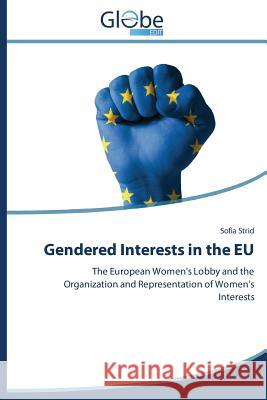Gendered Interests in the Eu » książka
Gendered Interests in the Eu
ISBN-13: 9783639619805 / Angielski / Miękka / 2014 / 336 str.
Gendered Interests in the EU explores the changed and changing institutional conditions for gender equality in the EU and the organisation and institutionalisation of women's social and political interests. It investigates the ways in which political structures and authorities enable and/or obstruct women to generate, sustain and control their presence in politics as women. The book analyses how the EU institutions structure and provide opportunities and constraints for women to mobilise and organise to act as an authorised party vis-a-vis and within the EU political system. How does it come that women, as a collective, are not only recognised as a politically relevant group but also legitimised to act and to be present as women in an organised relationship with the EU system's main authorities? Gendered Interests in the EU argues that a) in the specific political system of the EU, organised interests in civil society perform the function of input, participate in output and feedback and act as intermediaries between the national and EU levels, and b) the European Women's Lobby offers a remarkable EU level platform for groups of women to pursue their political interests.
Gendered Interests in the EU explores the changed and changing institutional conditions for gender equality in the EU and the organisation and institutionalisation of womens social and political interests. It investigates the ways in which political structures and authorities enable and/or obstruct women to generate, sustain and control their presence in politics as women. The book analyses how the EU institutions structure and provide opportunities and constraints for women to mobilise and organise to act as an authorised party vis-a-vis and within the EU political system. How does it come that women, as a collective, are not only recognised as a politically relevant group but also legitimised to act and to be present as women in an organised relationship with the EU systems main authorities? Gendered Interests in the EU argues that a) in the specific political system of the EU, organised interests in civil society perform the function of input, participate in output and feedback and act as intermediaries between the national and EU levels, and b) the European Womens Lobby offers a remarkable EU level platform for groups of women to pursue their political interests.











